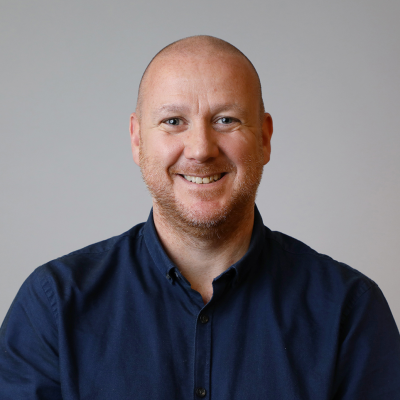Applying hindsight to Insight Learning so far from our research programme on health informatics
20 September 2016

What were you doing in April 2015? Perhaps you were settling down to watch the live leaders’ debate. Or maybe you were cheering Oxford to victory in the first Women’s Boat Race to be staged alongside the Men’s Race. At the Health Foundation we were welcoming the start of the latest round of projects funded by our Insight research awards. It's one of our largest research programmes, with five projects undertaking innovative research in the field of health informatics, ie using new forms of technology and data to support transformative change in health.
The projects are not due to finish until next year, but I am already looking ahead to the next round of awards. Building on the current programme and aligning with our strategy, the next round will focus on the use of national clinical audit and patient registries to improve health and care in the UK. We expect applications to open in spring 2017 and you can sign up for a website account to receive alerts when programmes open for application.
However that’s for the future. In the here and now, we’re reflecting on the current programme and taking stock on the wealth of learning surfaced to date.
At a programme level, prominent in my mind is the Gordian Knot that is research and information governance. The teams are experienced researchers and knew what to expect in this regard, but the process remains a challenge. Not least in the way approval processes often differ depending on the types of data requested. In February 2016 we hosted a workshop on health informatics research to explore how researchers have overcome challenges relating to data linkage and safe use of data. The learning is helping us better support research in this area.
At a project level, outputs are already emerging. Most projects still have a year to run and findings come with the usual caveat; but there are some notable achievements. The team from the London Ambulance Service (LAS) is linking data between ambulance services and acute trusts to improve patient care. Data sharing agreements are in place with six acute trusts and data is passing securely from three trusts to the LAS. This offers the potential to significantly improve current systems, and support the development of new pathways and protocols for pre-hospital interventions.
Still in London, the team at KCL is integrating data from pre-existing sources to develop a statistical model of organisational performance at the unit level. Findings suggest that key data often differ in unit of analysis and periodicity, and much effort has gone into establishing processes to clean data and find a standard for statistical analysis.
At the University of Cambridge, innovative techniques are also being used to support the repurposing of clinical information systems (CIS) data in critical care. Having discovered that difficulties in locating, extracting and manipulating CIS data can limit its use in quality improvement, the team has developed a prototype data restructuring tool (Data Noodles) to make it easier for clinical staff to manipulate and explore extracted data.
In Bradford, a computer-aided risk score (CARS), developed to estimate the risk of in-hospital death, is now being rolled out into clinical practice. Combining the National Early Warning System (NEWS) with routine blood test results, CARS offers the potential to enhance clinical decision making and improve patient safety.
Down the road in Nottingham, findings are emerging on doctors’ workload and task allocation during out-of-hours care. The team has developed a novel method to track (with consent) staff flow in the hospital and data from the project indicate that junior doctors walk approximately 20,000 steps (nearly 10 miles) during a shift. Early findings also show it may be possible to more closely match staffing levels with predicted periods of demand. The team is working with the Royal College of Physicians to incorporate the findings into a ‘Safe Staffing Guide’ for out-of-hours care.
A tremendous amount has been achieved over the first half of the programme. Key to the success has been hard work, expert knowledge and a desire to engage stakeholders. Looking forward, I am really excited to see the final outputs from the research and to explore the wider learning. We’ll be sharing the findings as they become available throughout 2017.
Shaun Leamon (@shaunleamon) is a Research Manager at the Health Foundation
Work with us
We look for talented and passionate individuals as everyone at the Health Foundation has an important role to play.
View current vacanciesThe Q community
Q is an initiative connecting people with improvement expertise across the UK.
Find out more

